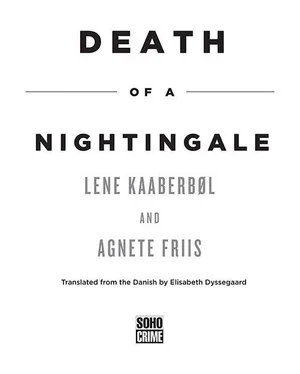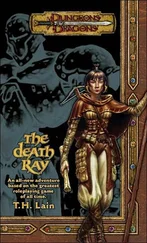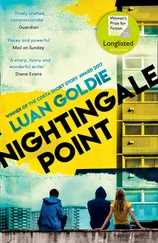Lene Kaaberbol - Death of a Nightingale
Здесь есть возможность читать онлайн «Lene Kaaberbol - Death of a Nightingale» весь текст электронной книги совершенно бесплатно (целиком полную версию без сокращений). В некоторых случаях можно слушать аудио, скачать через торрент в формате fb2 и присутствует краткое содержание. Год выпуска: 2013, ISBN: 2013, Издательство: Soho Crime, Жанр: Старинная литература, на английском языке. Описание произведения, (предисловие) а так же отзывы посетителей доступны на портале библиотеки ЛибКат.
- Название:Death of a Nightingale
- Автор:
- Издательство:Soho Crime
- Жанр:
- Год:2013
- ISBN:1616953047
- Рейтинг книги:5 / 5. Голосов: 1
-
Избранное:Добавить в избранное
- Отзывы:
-
Ваша оценка:
- 100
- 1
- 2
- 3
- 4
- 5
Death of a Nightingale: краткое содержание, описание и аннотация
Предлагаем к чтению аннотацию, описание, краткое содержание или предисловие (зависит от того, что написал сам автор книги «Death of a Nightingale»). Если вы не нашли необходимую информацию о книге — напишите в комментариях, мы постараемся отыскать её.
Death of a Nightingale — читать онлайн бесплатно полную книгу (весь текст) целиком
Ниже представлен текст книги, разбитый по страницам. Система сохранения места последней прочитанной страницы, позволяет с удобством читать онлайн бесплатно книгу «Death of a Nightingale», без необходимости каждый раз заново искать на чём Вы остановились. Поставьте закладку, и сможете в любой момент перейти на страницу, на которой закончили чтение.
Интервал:
Закладка:
“Tell me,” he said instead.
“In Ukraine, she is still wanted in that connection. She hasn’t been found guilty. Not yet. But she’s wanted. So when we learned that she had been recognized in Denmark, we were naturally interested.”
Søren nodded. “Are murder cases normally handled by GUBOZ?” he asked neutrally.
“At first it was a simple murder case under the jurisdiction of the criminal police. I wasn’t attached until a week ago when the extradition case started.” Babko looked closely at Søren. There was a subtext here, Søren sensed, but he wasn’t sure that he could read it.
“So you have formally requested her extradition?” he asked.
“Yes. But even before the extradition got properly underway, Colonel Savchuk had successfully requested an interview. The Danish officials were apparently very forthcoming.”
That searching gaze again. Søren was annoyed that he was clearly missing something, but he sensed that a direct question would be a mistake.
“I assume Savchuk is your English-speaking colleague?”
“That is correct. Colonel Jurij Savchuk.”
Finally Søren understood. With his slight emphasis, Babko was making it clear that Savchuk had a higher rank than he did and that he therefore was in a pinch right now. He couldn’t officially criticize a superior, though Savchuk had apparently left without being polite enough to tell his hosts where he was going or why.
“Where is Colonel Savchuk?” asked Søren.
“He is presumably investigating Natasha Doroshenko’s disappearance,” said Babko carefully.
“On Danish soil?”
“I assume he is doing so by agreement with the proper authorities.” It was clear that if this was not the case, Babko wasn’t at fault.
As far as Søren knew, there was no such agreement, and he strongly doubted that the “proper authorities” would take kindly to an unauthorized freelance effort from the Ukrainian police. But he let it pass. “The killing of Pavel Doroshenko,” he said instead.
“Yes. On September twenty-third, two thousand and seven, Doroshenko was found in his car near Lake Didorovka. At that point he had been dead for a few days. It was at first assumed that he had been murdered, since he had some obvious lesions, mostly on the hands, but it later turned out that the cause of death was heart failure, presumably caused by pain and shock.”
“He was beaten to death?”
“Yes and no. Four of the fingers on his left hand had been crushed—extremely painful, but under normal circumstances not lethal.”
“Crushed how?”
“In the car door.”
“And I assume it couldn’t have been an accident?”
“Unlikely. The door was slammed shut across his fingers several times. Normally you put a cable or thin rope around the victim’s wrist, and the hand is pulled toward the door while the victim sits bound in the car and already trapped by the seat belt. It’s said that the best tactic is to stick your hand as far out of the car as possible, so that the door slams closed on the wrist instead of the fingers, but it is very difficult not to attempt to pull your hand toward you. That’s the most natural reaction.”
Søren listened to the cool and almost routine description of the torture. “In other words, that happens regularly? This type of violence?”
“Yes. It’s a fairly common way of punishing people who, in one way or another, have had their fingers in the wrong pies.”
Søren’s eyes fell on the teenage-slim Natasha Doroshenko. “It doesn’t seem likely that this is a … punishment … that his wife could administer.”
“Not on her own, no. A petty criminal called Bohdan Pahlaniuk later took credit for providing the muscle. But he claimed to have been paid by the wife because she was upset that Doroshenko couldn’t keep his hands off other ladies. Pahlaniuk said that the intention wasn’t to kill him.” Babko tapped the case file with a square index finger. “Page two.”
Søren turned the page. Yes—page two was a confession signed by Bohdan Pahlaniuk and dated November 16, 2007.
“How was he caught?” he asked.
“Pahlaniuk was arrested and held for another assault a month or so after Pavel Doroshenko’s death. The Doroshenko confession surfaced in connection with that. But a warrant was out for her just a few days after the killing.”
“Why?”
“The most obvious reason, of course, was that she took off and left the country with her daughter a few hours after she had been questioned. But there were some other suspicious circumstances as well. Even though her husband had disappeared four days before he was found, she hadn’t reported him missing.”
“How long had they been married? How was their relationship?”
“They were married in two thousand. She was only seventeen. He was quite a bit older, in his mid-thirties.”
“Twice her age?”
“Yes, it’s not that uncommon. She’s from a small town near Kurakhovo in Donetsk Oblast. It’s not the greatest place in the world to live when you are a young girl wanting a bit of fun in life. Since the coal mine began shutting down production, everything has ground to a halt. There are whole neighborhoods that are practically ghost towns. He was a journalist, lived in Kiev in a fancy apartment—her ticket to the city and a completely different lifestyle.”
“Do you know whether there were, in fact, ‘other ladies’?”
“He had the reputation at least for being a bit of a babolyub before he married. Maybe the leopard hadn’t changed his spots just because he signed a wedding license.”
Søren considered the possibilities. There was apparently a certain amount of substance to the case against Nina’s young widow, and yet … certain peculiarities jumped out.
“Am I correct in assuming that Colonel Savchuk is a man of a certain position?” he asked.
For the first time in the course of the conversation, Babko sat totally still. The bouncing heel stopped bouncing; the fingers ceased drumming against the coffee mug.
“That’s correct,” he said. “In SBU.”
SBU was the Ukrainian secret police. Not exactly an organization with a spotless reputation.
“Not GUBOZ, then.”
“No.”
“What is his interest in this case?” asked Søren. “Wouldn’t it normally be handled by someone at a lower level?”
Babko looked at him for a few seconds with a poker face. “Correct again,” he said finally.
His replies became more and more minimal, Søren observed, the closer you got to Savchuk.
“Is he carrying his cell phone?”
“Presumably.”
Now we’re down to one word, thought Søren dryly. What would be next? Syllables?
“Do you have a number?” He deliberately shifted from the formal to the informal address to reduce the distance between them. We are colleagues , he tried to say. Help me out here.
Babko shook his head—a single abrupt gesture.
Silence filled the office. You could hear the traffic outside in Hambrosgade accompanied by the hissing of radial tires through slush.
“So you have no way of contacting him?”
“No.”
Not only was Babko a man playing away from home, but his only teammate was apparently more of an opponent than a fellow player. Søren could almost pity him, but only almost. Because one thing was clear: Babko was by no means telling Søren everything that he knew.
The Ukrainian militia was no knitting circle. Every year Amnesty International registered countless instances of torture, misuse of power and corruption, and the country’s own ombudsman in this area had had to note that up to three-quarters of those arrested were subjected to some form of abuse. In many instances the interrogation methods appeared not to have changed significantly since Soviet times when quick confessions were necessary if you were to solve the required 80 percent of your cases. Whether you had the correct guilty party was less important. It was all about closing the case in a hurry.
Читать дальшеИнтервал:
Закладка:
Похожие книги на «Death of a Nightingale»
Представляем Вашему вниманию похожие книги на «Death of a Nightingale» списком для выбора. Мы отобрали схожую по названию и смыслу литературу в надежде предоставить читателям больше вариантов отыскать новые, интересные, ещё непрочитанные произведения.
Обсуждение, отзывы о книге «Death of a Nightingale» и просто собственные мнения читателей. Оставьте ваши комментарии, напишите, что Вы думаете о произведении, его смысле или главных героях. Укажите что конкретно понравилось, а что нет, и почему Вы так считаете.










